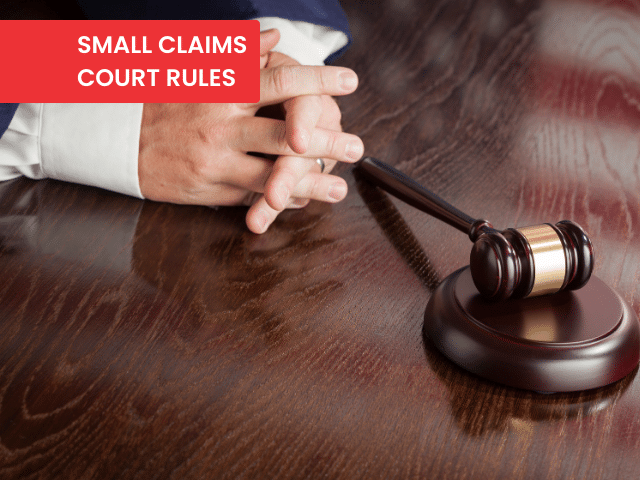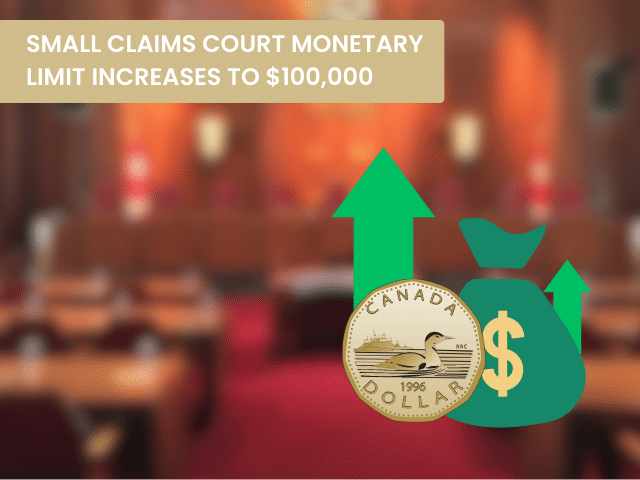
Introduction
Small claims court in Alberta is a simplified legal process designed to help individuals and businesses resolve disputes involving relatively small amounts of money. But how can you ensure that you have a strong case and improve your chances of winning? In this article, we’ll guide you through the process of suing someone in small claims court in Alberta, and provide tips on how to win your case.
Understanding Small Claims Court in Alberta
Before proceeding, it’s important to understand what small claims court in Alberta entails and the types of cases it handles.
Definition of Small Claims Court
Small claims court is a branch of the Alberta Court of Justice that deals with civil disputes involving small amounts of money. The purpose of this court is to provide a more accessible, affordable, and timely resolution to disputes.
Monetary Limit
In Alberta, the monetary limit for small claims court is $50,000. This means that your claim cannot exceed this amount. If your claim is for more than the limit, you may need to consider filing in a higher court or reducing your claim to fit within the small claims court jurisdiction.
Types of Cases Handled
Small claims court handles a wide range of cases, such as breach of contract, property damage, unpaid debts, and personal injury claims. It does not handle matters related to family law, wills and estates, or criminal matters.
When to Consider Filing a Small Claims Lawsuit
Filing a small claims court lawsuit should be considered when you’ve exhausted all other avenues to resolve the dispute, such as negotiation, mediation, or arbitration. If these methods have failed or are not applicable, small claims court may be your next best option.
Steps to Take Before Filing a Claim
Before you file a claim, it’s crucial to take the following steps:
Gather Evidence
Collect all relevant documentation, such as contracts, receipts, invoices, and photographs that support your case. This evidence will be crucial in proving your claim in court.
Send a Demand Letter
Before filing a claim, send a demand letter to the defendant. The letter should outline the nature of the dispute, the amount you’re claiming, and a deadline for payment. This gives the defendant an opportunity to resolve the issue without going to court.
Calculate Damages
Determine the exact amount of damages you’re claiming. Be prepared to provide a detailed breakdown of the amount, including any interest, costs, or fees you’re seeking to recover.
How to File a Small Claims Court Claim
To file a claim in small claims court, follow these steps:
Complete the Necessary Forms
Obtain and complete the necessary forms, which can be found on the Alberta Courts website. The most common form is the Civil Claim form. Ensure you accurately fill out all required information, including the parties involved and the amount you’re claiming.
File and Serve the Claim
Once your forms are completed, file them with the appropriate small claims court. You’ll need to pay a filing fee, which varies depending on the amount of your claim. After filing, serve the claim on the defendant according to the court’s rules. This can typically be done through a process server or by registered mail.
Prepare for the Court Hearing
After serving the claim, prepare for the court hearing by organizing your evidence, practicing your presentation, and familiarizing yourself with the court’s procedures. It may be helpful to consult with a legal professional or attend a court hearing as an observer to better understand the process.
Navigating the Court Hearing
During the court hearing, you’ll need to present your case, adhere to the rules of evidence, and potentially cross-examine the defendant or their witnesses.
Presenting Your Case
Clearly and concisely present your case to the justice. Explain the nature of the dispute, the damages you’ve incurred, and how the defendant is responsible. Use your evidence to support your argument.
Rules of Evidence
Follow the rules of evidence in small claims court. While these rules are generally less strict than in higher courts, it’s essential to be familiar with them. For example, you’ll need to provide a proper foundation for documents or photographs before they can be admitted as evidence.
Cross-Examination
If the defendant presents witnesses, you may have the opportunity to cross-examine them. Be prepared to ask questions that challenge their credibility, highlight inconsistencies in their testimony, or elicit information that supports your case.
Collecting Your Judgment
If you win your case, the court will issue a judgment in your favor. You may need to take additional steps to collect the judgment, such as registering the judgment with the Personal Property Registry or obtaining a garnishment order.
Tips for Winning Your Small Claims Court Case
To improve your chances of winning in small claims court, consider the following tips:
Be organized and prepared with your evidence.
Practice your presentation to ensure you can clearly and confidently explain your case.
Research similar cases to understand how they were resolved and what arguments were successful.
Be professional and respectful in your interactions with the court and the defendant.
Consider consulting with a legal professional for advice or representation.
Alternative Dispute Resolution
While small claims court may be your best option in certain circumstances, it’s essential to consider alternative dispute resolution (ADR) methods before filing a claim. ADR can provide a more efficient, cost-effective, and less adversarial approach to resolving disputes. Some popular ADR methods include:
Mediation
Mediation involves a neutral third party, known as a mediator, who helps the parties in a dispute communicate and negotiate a mutually acceptable resolution. Mediation is generally less formal and more flexible than court proceedings, allowing parties to find creative solutions to their problems.
Arbitration
Arbitration is similar to a court trial but is less formal and typically faster. An arbitrator, who is a neutral third party, hears both sides of the dispute and makes a decision based on the evidence presented. The decision may be legally binding or non-binding, depending on the parties’ agreement.
Negotiation
Negotiation is a direct communication process between the parties in a dispute, aimed at reaching a mutually acceptable resolution. Parties can negotiate directly with each other or involve legal representatives to assist in the negotiations.
Conclusion
Suing and winning in a small claims court in Alberta requires preparation, organization, and a clear understanding of the court’s procedures. By following the steps outlined in this article and utilizing the tips provided, you’ll be better equipped to present a strong case and increase your chances of success. Additionally, considering alternative dispute resolution methods may lead to a more satisfactory resolution for all parties involved.
Frequently Asked Questions
Q: What is the monetary limit for small claims court in Alberta?
A: The monetary limit for small claims court in Alberta is $50,000.
Q: Can I represent myself in small claims court?
A: Yes, you can represent yourself in small claims court, although you may also choose to hire a lawyer or seek legal advice.
Q: What types of cases are handled by small claims court in Alberta?
A: Small claims court in Alberta handles a wide range of cases, such as breach of contract, property damage, unpaid debts, and personal injury claims. It does not handle matters related to family law, wills and estates, or criminal matters.
Q: How long does it take for a small claims court case to be resolved?
A: The timeline for resolving a small claims court case can vary depending on the complexity of the case and the court’s schedule. In general, it may take several months to over a year for a case to be resolved.
Q: Are there any alternatives to going to small claims court?
A: Yes, alternative dispute resolution methods such as mediation, arbitration, and negotiation can provide a more efficient, cost-effective, and less adversarial approach to resolving disputes. These methods should be considered before filing a claim in small claims court.


